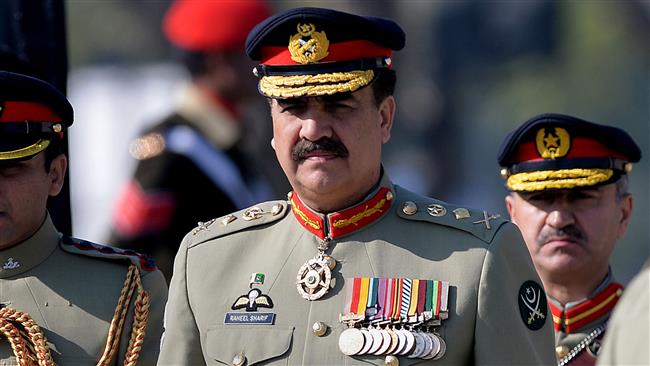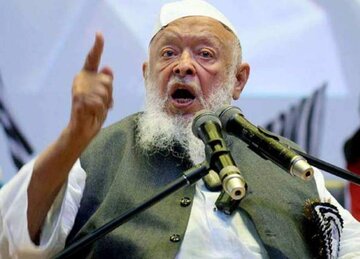According to Pakistani media report, the Islamabad government has issued a no-objection certificate (NOC) for Sharif to assume the command of the controversial alliance after an understanding was reached between Pakistan and Saudi Arabia on the matter.
In December 2015, Saudi Defense Minister Deputy Crown Prince Mohammed bin Salman announced the formation of an alliance of Muslim-majority countries, which now numbers 40. Riyadh claims the alliance has been formed to fight extremist groups such as the Daesh Takfiri terrorist group.
Defense Minister Khawaja Asif earlier confirmed that the Pakistani government had cleared Sharif to take up the job as the head of the Riyadh-based military coalition following a formal request from Saudi Arabia.
Foreign Secretary Tehmina Janjua assured a parliamentary committee on Tuesday that the alliance was not against any country.
The controversial appointment has been strongly denounced by some politicians, retired army officers and intellectuals, Shia and moderate Sunni Muslim leaders.
Main opposition parties, including the Pakistan People’s Party (PPP) and Pakistan Tehreek-e-Insaf (PTI), are also skeptical of Sharif’s role in the alliance.
PTI Chairman Imran Khan has tasked parliamentarians of his party with taking the issue to the parliament.
“We strongly oppose this decision and will soon raise the issue in the parliament,” PTI spokesman Fawwad Chaudhry said.
PTI’s senior lawmaker Shireen Mazari responded to reports of the appointment by posting a message on Twitter that read, "This [joining the alliance] will add to sectarian polarization within Pakistan as well as greater regional instability. Parliament's approval should have been sought."
PTI's Ali Muhammad Khan said it was "strange" that the former army chief had remained silent on the topic since it first came to light.
"I want to hear it from the horse's mouth," Khan said, adding, "It is time that we know what this alliance is and on what basis was it formed."
Opposition lawmakers consider the decision a violation of a parliamentary resolution passed in April 2015 that called for Pakistan to maintain a policy of neutrality, particularly in the Saudi aggression against Yemen. The Saudi campaign, which allegedly seeks to restore Yemen's ex-government to power, has killed over 12,000 Yemenis, according to the latest tallies.
/106





